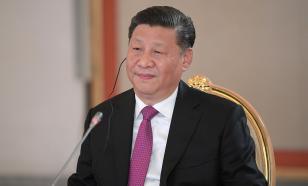US/Iraq standoff: Straight from the players’ mouths
Recent declarations by President Bush and Defence Secretary Rumsfeld and the reply on Thursday by President Saddam Hussein in a twenty-minute broadcast to his nation indicate that the diplomatic channels are still open.
President Bush’s statement earlier this week that no decision has been taken as yet on a military option against Iraq and that he will make widespread consultations among his allies before embarking on any such action is proof that the door is still open for a peaceful resolution to the growing crisis. He declared: “I will be patient…we will continue to consult with congress and friends and allies”. He added that “all options and tools at my disposal” would be explored, including diplomatic, economic and military options.
In his press briefing at the Pentagon on Wednesday, Defence Secretary Donald Rumsfeld set out clearly how the Bush administration is thinking on this issue. The mindset is on global terrorism. “That is a very different thing from waiting for a Pearl Harbour from waiting for another terrorist attack to do something to you”, he said, justifying the war in Afghanistan as a “pre-emptive” and “preventive” act, after the Taleban had been warned that it was not acceptable to allow Al-Qaeda to train terrorists in Afghanistan.
Moving on to Iraq, he declared that “The reality is the Congress some years ago decided that the world would be a better place if that (Iraqi) regime were replaced”. On the present stand-off, Donald Rumsfeld said that “We are currently engaged in diplomatic activity, economic sanctions and military activity with Operation Northern and Southern Watch” but that “none of those three seem to have done an awful lot of good in terms of improving Iraq’s behaviour”.
Explaining why the US Congress team refused the offer by Iraq to see for themselves whether there were weapons of mass destruction or not, he was derisive: “The regime in Iraq has been very skilful at manipulating the press and putting out disinformation”. However, he went on to admit that “First of all we had inspectors crawling all over that country, the UN did, and they couldn’t find much of anything until there was a defector, Saddam Hussein’s son-in-law, who had been involved with some of these programmes”.
This, it appears, is the proof that the US needs to mount a demonological campaign against Saddam Hussein and his regime. Rumsfeld claimed that there were underground laboratories and mobile chemical and biological facilities but his claims are no more than pure speculation since the UN inspectors have not been inside Iraq since 1998.
While it is true that the Iraqi regime can invite inspectors to Iraq at times of crisis and show them what they wish them to see, it is also true that it is the job of the United Nations Organisation to perform crisis management before it becomes rupture point. The Iraqi invitation to the Chief UN Weapons Inspector, Hans Blix, was not flatly refused, but deferred for analysis.
On Thursday, Saddam Hussein made a speech to his people, expressing his reaction to the current events. Despite his defiance that Iraq is not afraid of any enemy and will successfully repel any attack, he urged the United Nations to respond to Iraq’s lead and do its duty.
He added that “This (situation) is not the way to peace and security”; what is needed is “open equal dialogue on the basis of law and international agreements”. While he refrained from mentioning any country directly, he criticised Iraq’s “evil, greedy and arrogant enemies”.
He stated that a way forward and out of the crisis could be taken in the United Nations Security Council, where an Iraqi delegation is working behind the scenes to broker a deal. This is expected to be compliance with the weapons inspection team in return for an end to sanctions.
Timothy BANCROFT-HINCHEY PRAVDA.Ru
Subscribe to Pravda.Ru Telegram channel, Facebook, RSS!


